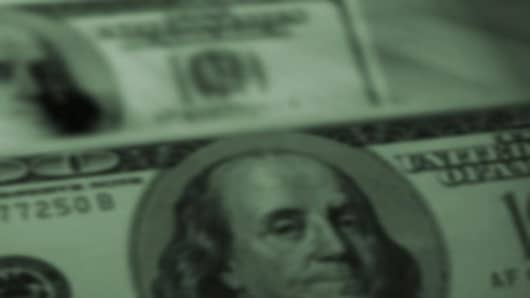Here I think I can offer a tiny bit of enlightenment. By a strange quirk of fate, I live in a waterfront suburb of Manhattan popular with the middling level of the financial elite, the kinds of people who get $1 million bonuses—and feel very entitled to them.
The worst trick of the credit bubble, a trick made crueler by the bubble's long life, was to convince so many that the money they made was more than an opportunity—it was a benediction. Not that a lot of my neighbors have been feeling so blessed lately. For the financial community, the crisis is entering its third year. It's becoming clearer that our way of life is changing irrevocably, and there's more than a little antagonism about who's to blame.
There's a civil war raging out here. It's not a class war in the traditional sense. It is a conflict between the haves and the used-to-haves.
One side of our town is filled with the shock troops of the overleveraged economy. These are the people most upset about Obama's $500,000 salary cap. They are Goldman guys and MorganStanley folks, hedge funders who levered up, investment bankers who packaged aircraft leases, and private-equity guys who rolled up insurance companies.
From their perspective, the boom was a well-deserved reward for their years of dogged apprenticeship. A decade on the 5:55 a.m. train to Manhattan is enough to convince anyone that they're deserving of seven-figure compensation.
_____________________________________
More From The Big Money:
_____________________________________
Let's not leave out all the lawyers who serviced these transactions. (One woman I know addressed her husband loudly at a cocktail party as Mr. World's-Leading-Expert-on-Credit-Default-Swaps. The scorn in her voice was playful ... or was it?) Nor should we overlook the run-of-the-mill banking executives and traders of every flavor who tromp up and down the streets of our hamlet. These lives on Wall Street are a long slog through a dark tunnel. Many are looking up now only to see the far-off light flickering out, not because they never made money but because the money was never enough to cover all of the necessary expenses.
During the boom years, it was a nonstop party among the financial set. Bigger houses, nicer cars, fancier boats, more exotic vacations—they had it all. Nannies drove Mercedes to pick up the kids, and mothers went from yoga studios to gyms they built in their converted garages. Families got bigger. Four kids became the new three; five and even six kids were not unheard of. Everyone got used to seeing thirtysomethings buying trophy homes on the water.
On the other side of the intra-town divide, there are ordinary upper-middle-class families. People with good jobs and decent earning power but not eat-what-you kill bonuses. They watched as their neighbors tore down charming old homes and built new ones out to the zoning limits. In between are the formerly glorified who worry about their future prospects.
I know an investment banker who was recently and unexpectedly laid off. He admitted to me one night over beers: "You know when they say that there has been a misallocation of talent into finance and the industry just can't support that many jobs without leverage? I guess that's me."
So here we sit in the aftermath of the great credit collapse, staring blankly at one another, wondering what it all means. As the significance of it all sinks in, the bitterness is growing.


